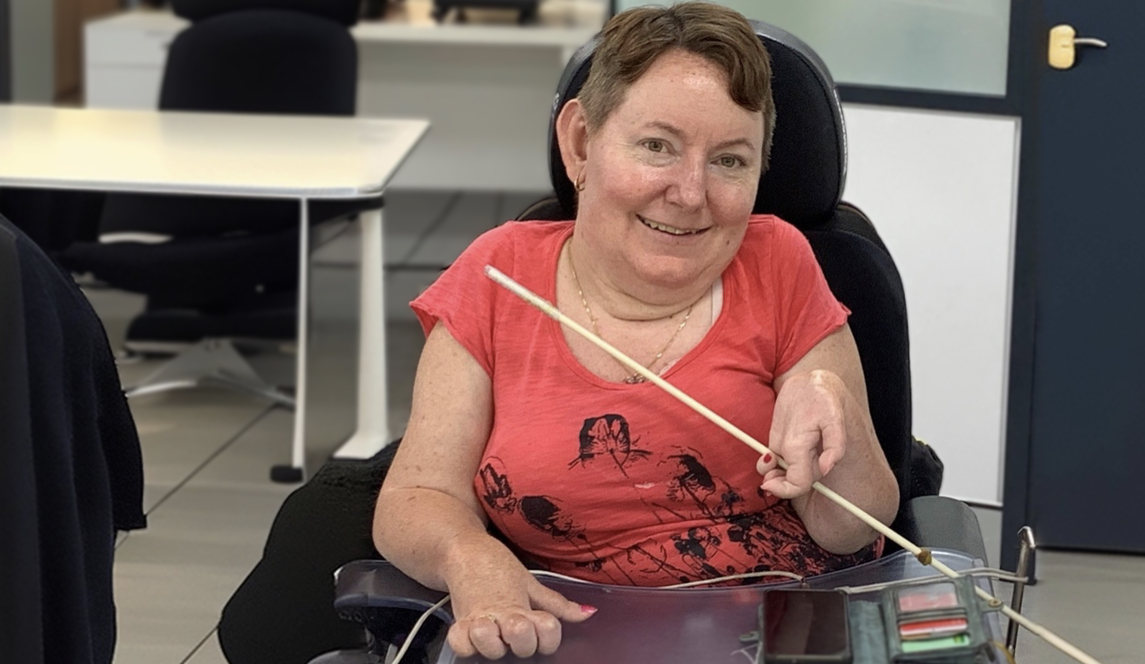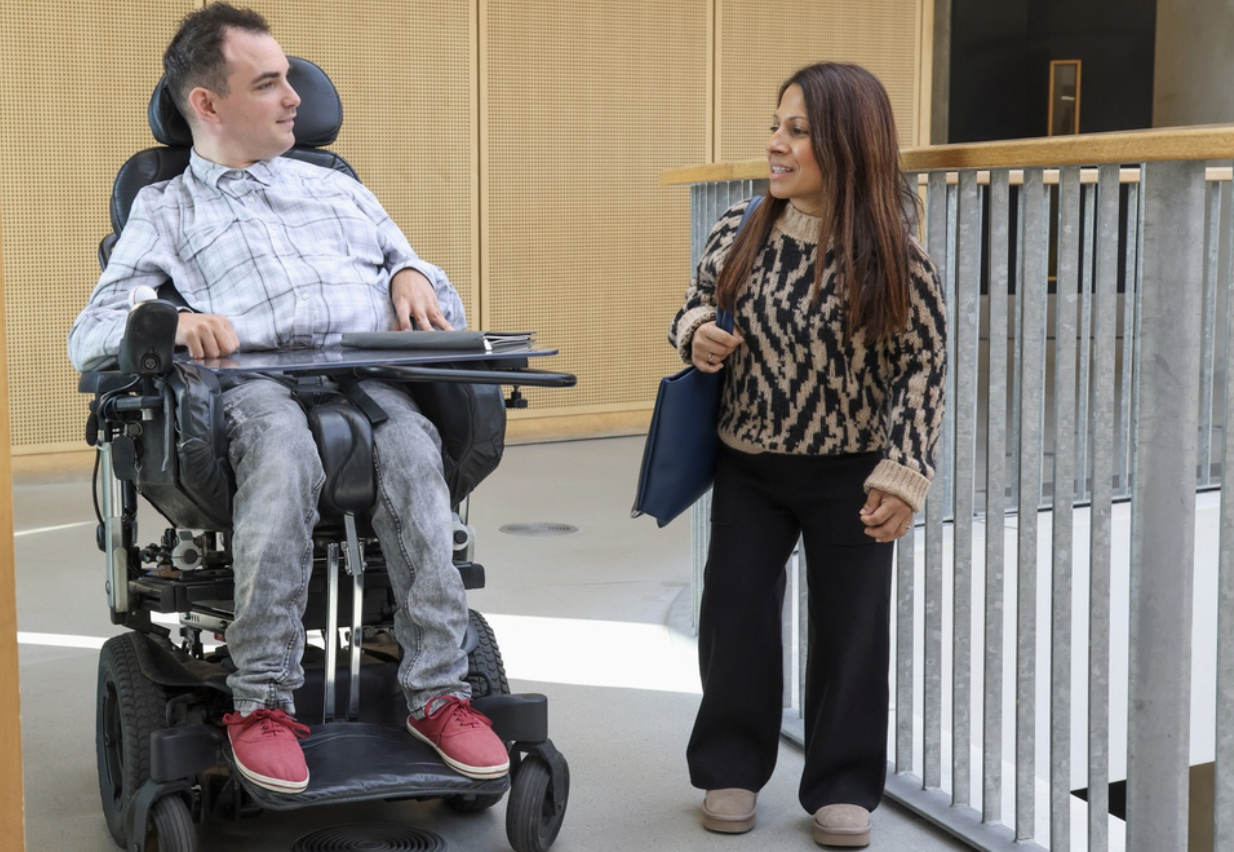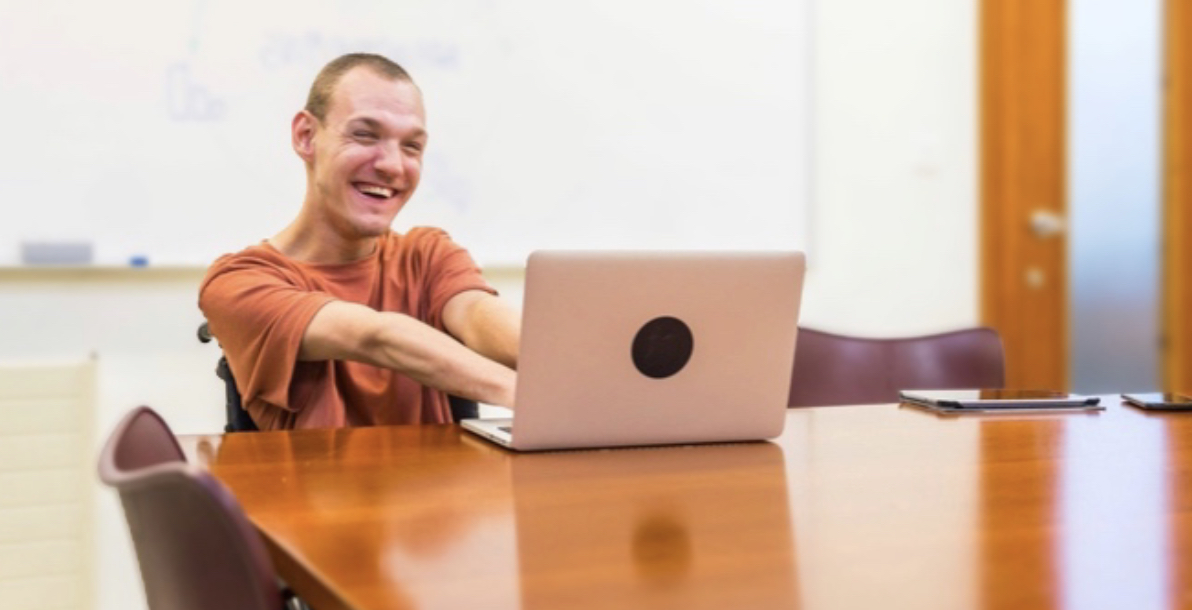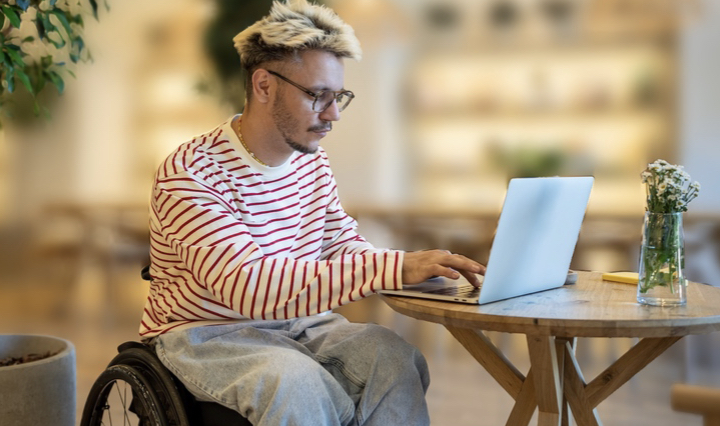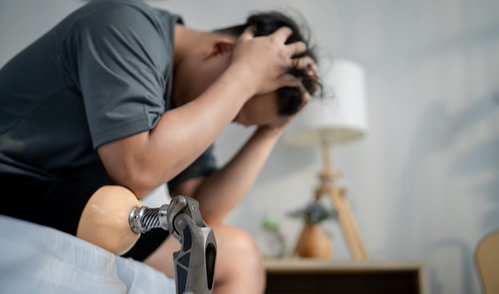Written by Melanie Hawkes, PDA’s WA Director
The elevator doors closed behind me, but it didn’t move.
Uh-oh, I thought. Now what?
In the 14 years I’d been a wheelchair user, I’d never been in a lift on my own before. But here I was, in my first semester of a Japanese Studies degree at Murdoch University, and needing to get to the second floor for a lecture on cross-cultural psychology. It was a very small lift in an old building at the opposite end to the lecture room. My arms weren’t long or straight enough to press the button to go up. I was stuck. For about an hour. And missed my lecture.
This was 1997, before everyone had a mobile phone, so I couldn’t even call for help. Eventually someone came to use the lift and found me – what a surprise they got. I was just relieved to be out of there. Lucky I don’t get claustrophobic.
That afternoon when my mum came to pick me up, I told her what had happened. “You need to carry a stick,” she said.
Being the practical person Mum is, we stopped at Bunnings on the way home. She bought me a wooden dowel, a pack of rubber stoppers that fit the end, and some plastic tubing. When we got home, she put a rubber stopper on one end of the dowel, cut some tubing and slid it over the other end, and gave it to me. Voila: my stick was born.
I put the plastic tubing end into my mouth and tested my stick on a light switch. Oh my goodness, it worked! For the first time in my 17 years, I could do things I’d never thought possible, like turn a light on or off. This would be the start of the independent life I’d craved. Thanks Mum!
But what else could I use it for? I looked around my room. If I hooked the little rubber stopper on my pencil tin on my desk, I – oh yes – I could bring it closer or push it out of my way. I learnt that I could also scratch my head, type on my computer and open and close doors. While I was living with my parents and three younger brothers, it hadn’t occurred to me that I’d need to be capable of doing these things for myself if I wanted to move out of home and not need 24-hour care.
The only challenge with my new stick was how to carry it? I’d need it at uni to press lift buttons, so I wouldn’t get stuck ever again. My stick might be small in diameter but was about a metre long. It was too big to carry on my tray.
My dad got to work in his shed. He was a boilermaker and had lots of tools at home. It didn’t take him long to develop a stick holder. Made from aluminium tubing, he blocked the bottom, and attached a bracket to screw to my leg rest. I now had a stick and could carry it everywhere I went. Thanks Dad!
I developed an independent spirit from that day. My parents had always encouraged me to do as much as I could for myself, while accepting help for the things I couldn’t. But with this stick, I could demonstrate it practically to others. I’m certain it helped me be accepted as an exchange student to Japan in 1999 for 10 months. I wasn’t taking no for an answer and was determined to fulfil my university studies degree by studying at a Japanese university.
The problem with wooden sticks is they broke often. And when overseas studying, it became an issue. We found a hardware / garden centre that had my stick replaced quickly, every time I broke it.
Once back in Perth, I graduated and had to find a job. I was invited to be a guest speaker at disability awareness training sessions for Main Roads staff. I always started my talk by showing my stick and asking what people thought it helps me with.
After one presentation, a man at the back put his hand up to ask me a question. “Why do you use a wooden stick? Have you ever used fibreglass sticks?”
I shook my head. During the morning tea break we chatted further. “We use them as flag poles for the orange flags at children’s school crossings,” he explained. “We often get them back a bit worn out. I could deliver some to you next week.”
Sure enough, the following week he delivered four to my door. They were slightly slimmer than the wooden ones I was used to, and a little heavier. I had to build my jaw muscles to be able to use it effectively, since I use it in my mouth for most things. It took me a while to get used to it, but I haven’t broken a stick since. I’m still using the original ones – for over 20 years now.
In 2015 I received my third assistance dog, Upton. He found my stick difficult to pick up off the floor. He couldn’t get his front teeth underneath it. “What if we added an elastic band?” his trainer asked me.
With the band in place, Upton learnt to target the band to pick it up every time. But I quickly found another use for it: tagging my Smartrider card on and off buses and trains. I always carried my card in a plastic pouch with a pipe cleaner handle, and dangled it from the end of my stick. But on buses, the tag-on machine is above my head height, so the pouch always slid and hit me in the face. The elastic band stops it sliding, and since then I haven’t had to ask other passengers to tag on for me. Thanks Upton!
In 2023 I was browsing social media when I saw a competition called the Simply Open Awards. They were looking for simple solutions and innovations that can help people with disabilities. I made a five-minute video about my stick. I explained why I needed it, how it was made, and demonstrated several uses around my home, from pressing light switches to sliding doors open and closed. I even showed how I can heat my leftover dinner in the microwave with the short stick I have.
One evening I received an email saying I was a prize-winner (a cash prize of £750), and my video had been sent to the judges at the Discovery Awards. The next night I received an email saying my video was voted the top two innovations IN THE WORLD, and my prize was a trip to Vienna to attend the Zero Project Conference in February 2024! All because of the video I made about my stick. The stick I carry everywhere because I was stuck in a lift and couldn’t reach the button. The same stick that has enabled me to catch public transport to work independently, and not need 24-hour care. It really did change my life.

